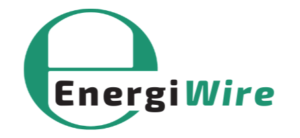INTRODUCTION:
Without much progress, the never-ending discussions about risk in the cryptocurrency industry continue. Another paper on regulatory solutions to address the threats to TradFi posed by crytop and DeFi was released last week by the European Systemic Risk Board (ESRB). There hasn’t been much progress toward creating the regulations needed to reduce the hazards so far. In the post below, Rick Steves, Managing Editor for FinanceFeeds, discussed recent policies being considered by ESRB and IOSCO to connect crypto and Tradfi as a way to reduce the risks.
__________________________________________________________
While this past year has been turbulent for cryptos and DeFi, the impact on the financial system was limited, the European Systemic Risk Board (ESRB) stated in a report released late last week.
‘Crypto assets and decentralized finance – Systemic implications and policy options‘ outlines the systemic implications of crypto markets and proposes policy options to address the risks stemming from crypto-assets and decentralized finance (DeFi).
Crypto’s exponential growth and high volatility could drive systemic risks
According to the report, the crypto market has few interlinkages with the traditional financial sector and the real economy, and none of those links are currently significant. The exponential growth and high volatility of cryptos, however, are reason enough to be closely monitored as they may come to pose systemic risks.
“These risks could materialize if, for example, interconnectedness with the traditional financial system increases over time, new connections are not promptly identified, or if similar innovations – such as distributed ledger technology – are also widely adopted in traditional finance”, said the announcement.
ESRB proposes standardized reporting and disclosure requirements
The report also proposes a number of policy options to better understand developments in crypto-assets and their potential financial stability implications:
First, the EU’s capacity to monitor potential contagion channels should be improved. This applies both to channels between the crypto sector and traditional finance, and to channels within the crypto sector. To this end, it is key to promote standardised reporting and disclosure requirements for:
- (i) traditional financial sector institutions such as banks that are exposed to cryptos;
- (ii) investment funds with crypto exposures; and
- (iii) entities such as stablecoin issuers or e-wallet service providers in the crypto sector.
Second, the report considers policy options to address risks arising from crypto conglomerates, crypto-based leverage, novel operational challenges, DeFi, and crypto staking and lending.
IOSCO says how to regulate crypto assets
Last week, the International Organization of Securities Commissions (IOSCO) has issued detailed recommendations to jurisdictions across the globe as to how to regulate crypto-assets in a major initiative designed to improve global standards of regulation of crypto-assets.
The association of organizations that regulate the world’s securities and futures markets, which intends to be the global standard setter for securities markets, has set out how clients should be protected and how crypto trading should meet the standards that apply in public markets.
IOSCO suggested 18 measures to cover conflicts of interest, market manipulation, cross-border regulatory cooperation, custody of cryptoassets, operational risks, and treatment of retail customers.
IOSCO represents 130 members around the world regulating more than 95% of the world’s securities markets, which allows the organization to deliver an effective and globally consistent set of policy recommendations.
The policy recommendations are open to public consultation and will be finalized by the end of the year. Once that happens, IOSCO expects that jurisdictions will review their current regulatory frameworks to ensure that they comply with the standards and fix any gaps promptly.
Via this site

